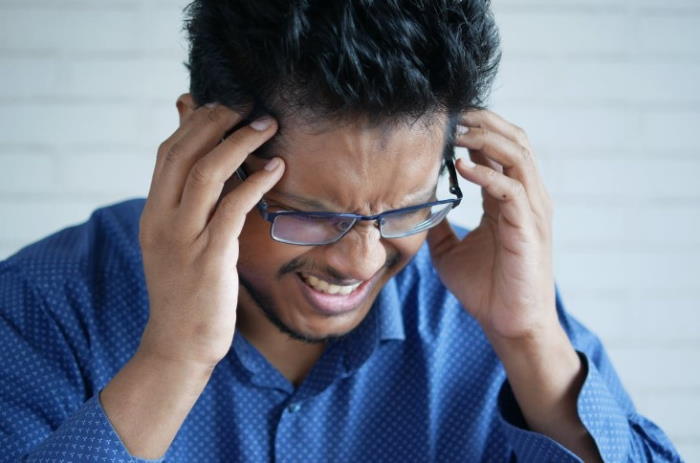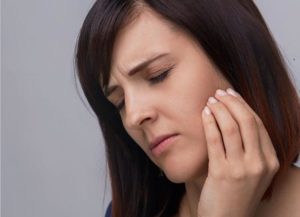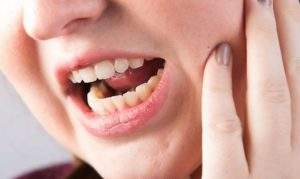What makes sleep apnea quite tricky to diagnose is that, unless your sleep partner tells you about your snoring, you may never know you have it. Fortunately (or unfortunately), some symptoms you can watch out for manifest the day after, such as a dry mouth and sore throat, daytime tiredness, difficulty remembering, lack of concentration, and morning headaches.
The problem with these symptoms, though, is that you can easily mistake them for other conditions. Headaches, for example, are usually interchanged with migraines. And many people who regularly suffer from morning headaches believe they are suffering from migraines. But is there a connection? Can sleep apnea cause migraines? Keep reading to learn more.
Sleep apnea and migraines: what to know
It’s an age-old solution to “sleep off” your headache. And there seems to be wisdom behind this treatment, as rest can help prevent and even treat common health conditions like headaches caused by sleep disorders such as sleep apnea.
The problem is, not all headaches are the same. Some people experience pulsating pain in one side of their head that can last for hours, making them sensitive to light and noise – this is called a migraine. While everyone wants to get some extra sleep (that is, if they could), migraine attacks make it almost impossible to fall asleep.
The American Migraine Foundation reports that people who suffer from the condition are 2 to 8 times more likely to suffer from sleep disorders. This should answer the question raised in the first paragraph, right? Well, no.
See, headaches and migraines may feel similar, but they are quite different.
Can sleep apnea cause headaches?
Yes. Sleep apnea causes morning headaches. More than 20% of people who suffer from obstructive sleep apnea also experience morning headaches.
These headaches are often experienced by patients with moderate to severe cases of sleep apnea, as the oxygen level in their blood drops due to the disruption in breathing caused by chronic snoring. The lack of blood in the bloodstream and the carbon dioxide buildup in the lungs affects the brain, leading to headaches.
This is because as the carbon dioxide level rises, the blood vessels in and around the head start to dilate; this causes a migraine-like headache that is both irritating and throbbing. However, there are some key differences between sleep apnea headaches and migraines, he added.
Can sleep apnea cause migraines?
While sleep apnea may trigger migraine attacks in some individuals, and people who suffer from chronic migraines are at risk of sleep apnea, there is still not a clear connection between the two. This is according to a study of the relationship between sleep apnea headaches and migraine.
This is because experts are yet to pinpoint the exact cause of migraines. Migraine attacks are thought to be the result of abnormal activity of the brain that affects nerve signals, blood vessels, and chemical bonds in the brain.
It is said to be triggered by the release of chemicals such as serotonin, which narrows the blood vessels. Serotonin is an essential chemical for the interaction of nerve cells. However, it causes the narrowing of blood vessels all over the body. When serotonin and estrogen levels change, it results in migraine attacks for some people.
Differences between sleep apnea headaches and migraines
It is important to note that sleep apnea headaches and chronic migraines have very different symptoms. Here are their key differences:
Location and Type of Pain
The pain in the morning headaches from sleep apnea is pressing and is usually on both sides of the head. While a migraine headache is characterized by pulsating pain and is usually on just one side of the head.
Duration
In terms of duration, sleep apnea-induced headaches usually last less than 30 minutes, and usually happen the morning after. This is because once you are awake, the lungs are moving air in and out, putting carbon dioxide levels back to normal.
Migraine headaches, on the other hand, can last for four hours or even longer. Some may even last for up to 72 hours, especially if it is accompanied/triggered by physical disturbances or sensations.
Severity
In terms of its severity, headaches caused by sleep apnea don’t cause disability. Whereas, migraine pain can be so debilitating that it renders the individual disabled. Chronic migraines can make it impossible for an individual to function normally. The condition is considered a disability in the United States, and one can file a claim for Social Security disability benefits.
Associated symptoms
Sleep apnea often comes with other symptoms such as daytime sleepiness, difficulty concentrating or paying attention, poor memory, waking at night to urinate, and low libido.
Migraine headaches, on the other hand, are accompanied by nausea and extreme sensitivity to bright lights and noise or loud sounds.
Get help
Indeed, lack of sleep can cause headaches. Research has linked tension headaches and migraines with lack of sleep. Thus, getting enough quality sleep or getting medical help to be able to sleep well may reduce the duration and severity of the headaches.
Whether you think you are experiencing morning headaches caused by sleep apnea or headaches from a migraine, you must see your doctor as soon as possible.
A sudden severe headache may be a sign of a medical emergency, especially if it is accompanied by symptoms such as weakness in one side of the body, high fever, stiff neck, acute vision changes, and trouble speaking. These symptoms could indicate inflammation of the brain, which can be extremely dangerous.
It also helps to keep a record of your sleep, pain and fatigue levels, and other symptoms you may be experiencing, especially in the morning when you wake up, and throughout the day leading up to your doctor’s appointment. This can help your doctor understand your situation and make a better diagnosis, which is crucial for your treatment.
You will have to undergo a series of tests to determine what exactly you are experiencing and the cause of your condition. Doctors often prescribe sleep study, which requires an overnight stay at a sleep center. A sleep study will give your doctor a clearer picture of your disorder and help them map a treatment plan.


























